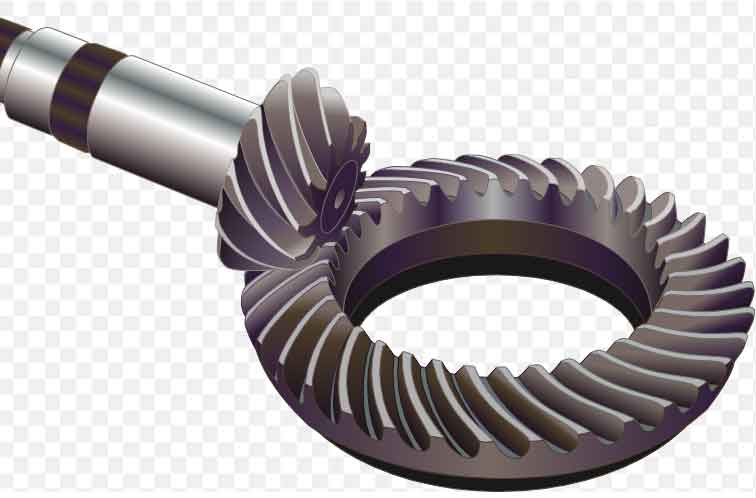
The choice of gear materials significantly impacts the performance and reliability of spiral bevel gears in various mechanical systems. The material selection is crucial in ensuring that the gears can withstand the operating conditions, transmit power efficiently, and maintain their integrity over the gear’s lifetime.
Several factors influence the influence of gear materials on spiral bevel gear performance, including:
1. Strength and Durability: The material’s strength and fatigue resistance are critical factors in spiral bevel gear performance. Gears are subjected to cyclic loads during operation, and the material must withstand these stresses without experiencing premature failure or wear.
2. Wear Resistance: Gears are in constant contact with each other, and their surfaces may undergo wear over time. Choosing materials with good wear resistance helps extend the gear’s lifespan and reduce the need for frequent replacements.
3. Friction and Lubrication: The material’s coefficient of friction can affect the gear’s efficiency and heat generation during operation. Proper lubrication is essential to reduce friction and wear between the gear teeth, improving overall gear performance.
4. Thermal Conductivity: Gears can generate heat during operation, and materials with good thermal conductivity help dissipate heat and prevent overheating.
5. Machinability: The ease with which a material can be machined into precise gear shapes is another consideration during material selection.
Common materials used for spiral bevel gears include:
1. Alloy Steels: Alloy steels, such as AISI 8620, 9310, and 4340, are commonly used for spiral bevel gears. They offer good strength, toughness, and wear resistance, making them suitable for various industrial applications.
2. Carburizing Steels: Carburizing steels, such as AISI 9310, are heat-treated to create a hardened outer layer with a tough and ductile core. This process enhances the wear resistance and strength of the gear teeth.
3. Powder Metallurgy (PM) Steels: PM steels are made by compacting and sintering metal powders. They offer good dimensional control and can be designed for specific gear applications.
4. Stainless Steels: Stainless steels are used when corrosion resistance is a concern, making them suitable for gears used in marine and food processing applications.
5. Non-Ferrous Alloys: In certain cases, non-ferrous alloys like bronze or aluminum bronze may be used for specific applications requiring low friction and good machinability.
The specific material chosen for spiral bevel gears depends on the application’s requirements, including the operating conditions, load capacity, speed, and environmental factors. Proper material selection, along with careful design and manufacturing, is critical to achieving optimal performance and longevity of spiral bevel gears in various mechanical systems.
